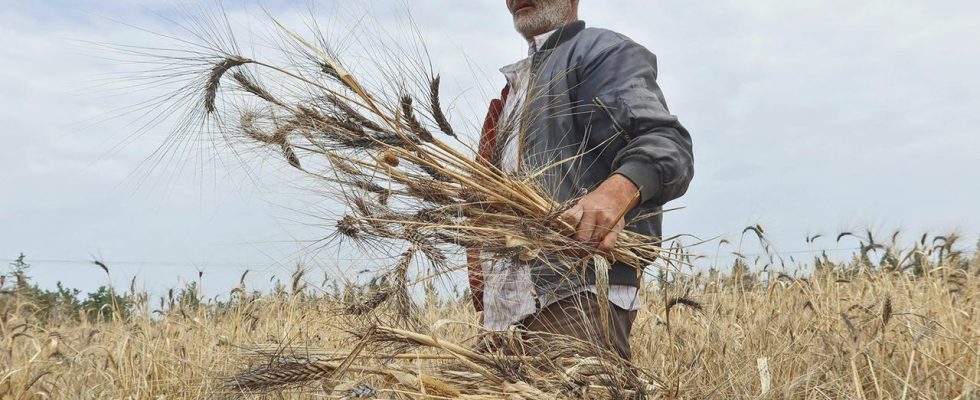Because of the war of aggression against Ukraine, wheat imports are faltering in many places – including Tunisia. The country covers up to 70 percent of its needs from imports – and the government can barely foot the bill for it.
Wheat has become a scarce commodity in Tunisia – even more than a year after the start of the Russian war of aggression against Ukraine, this is still everyday life. Some supermarkets have completely abolished their wheat shelves – so there are no unwelcome photos of empty flour shelves from Tunisia’s capital Tunis.
A customer in a middle-class neighborhood is resigned: “There is no subsidized oil, bread is mediocre, we don’t always find flour – we try to deal with it as best we can, but even semolina for baking bread at home is not available.” , explains the pensioner. When asked if he’s used to it, the customer replies that the worst case scenario is eating noodles.
Bottlenecks don’t just affect wheat, says another customer in her forties. She is happy that she found coffee in the supermarket today and was able to buy it. You try to take what you can get. “For example, I’m looking for a specific bread – I’m diabetic – and can’t find it. Today I was surprised, there was even coffee. I asked how many packages I could take with me. I was told as many as I wanted. That has shocked me,” says the customer.
High tariffs for foreign brands
The reason: sugar, flour, rice and oil are often not available, other staple foods are rationed per person and purchase. Basic foods in Tunisia are heavily subsidized by the state, grain is imported centrally by the state. Foreign brands are classified as luxury goods and are difficult to afford for many consumers in Tunisia due to high tariffs. The problem: Tunisia’s government is finding it difficult to pay the bill for imports.
But that doesn’t just have something to do with the war in Europe, says Thomas Claes from the SPD-affiliated Friedrich Ebert Foundation in Tunis. According to him, Tunisia covers 60 to 70 percent of its wheat needs through imports. By the end of 2021, the Tunisian government was no longer able to pay for incoming wheat deliveries. This is due to rising world market prices, massive debt and the corona pandemic. Important income, such as from the tourism sector, was missing.
For about 40 years, Tunisia has not adjusted the area for wheat cultivation to the population and population growth. Accordingly, too little wheat was produced in the country, explains Claes. The country has always compensated by importing wheat. Here, the Ukraine crisis then plays a “certain role by causing prices to rise again,” says Claes.
Agricultural sector in Tunisia needs to be restructured
Also because, on the advice of the World Bank, Tunisia relied, for example, on producing fruit for the European or international market and “of course using the proceeds from this export to finance the import of new wheat.” However, that no longer works well because this “trade-based food security” has turned out to be a “big problem” for Tunisia, Claes explains.
Tunisia must restructure its agricultural sector and produce more staple foods itself in order to be able to better protect itself from fluctuations on the world market – and more efficiently than before. For example, the small North African country uses 80 percent of its water for agriculture alone. The direct aid from the EU and the USA would lead to direct deliveries of wheat, which have hardly been the case in Tunisia since the end of the Second World War.
Claes from the Friedrich Ebert Foundation describes the situation in Tunisia as “still bad” – the country is also in a “difficult situation” in terms of economic policy. Added to this are climate change, periods of drought and water shortages.
So far, Claes has seen little political will for sustainable solutions. The strongman in the state, President Kais Said, is pointing the finger at others in view of the country’s economic situation, even though he has usurped more and more power since 2021 and has ruled in an increasingly authoritarian manner. He finds culprits among former government politicians, Islamists in the country or, most recently, among migrants and refugees. Even without the wheat crisis, Tunisia is on the brink of economic bankruptcy.

